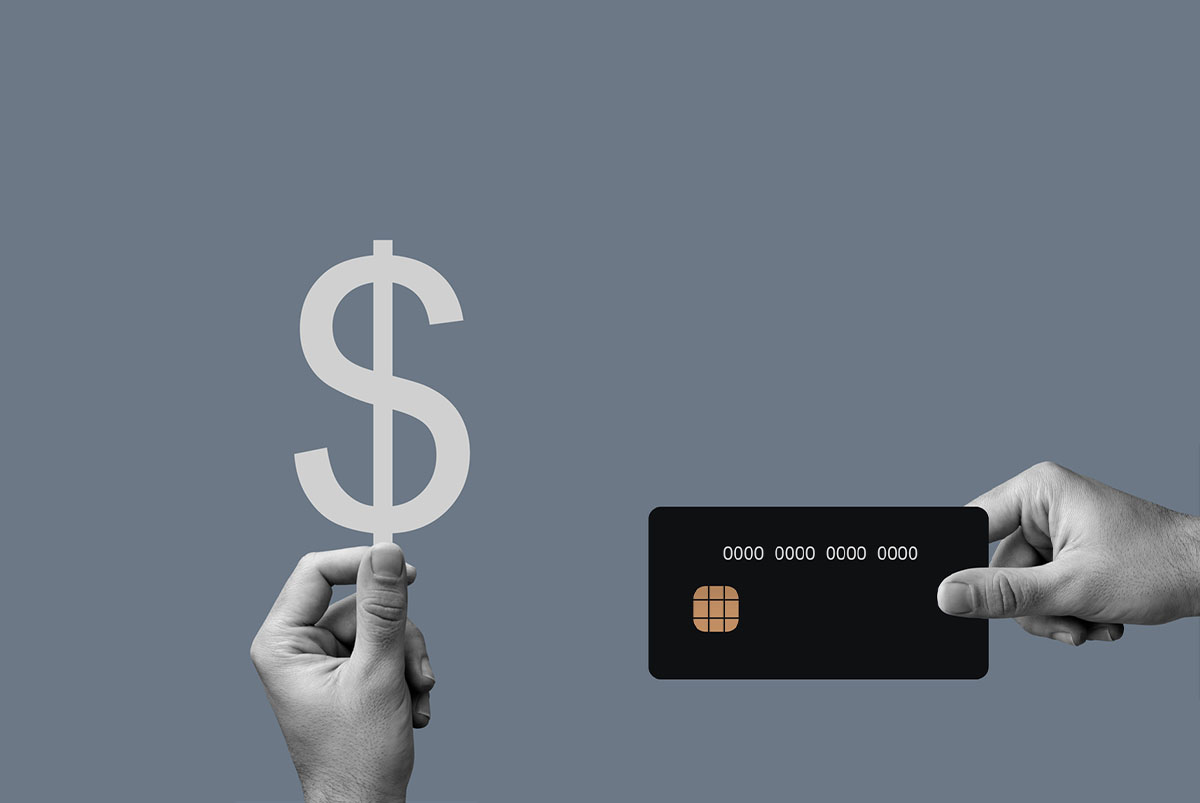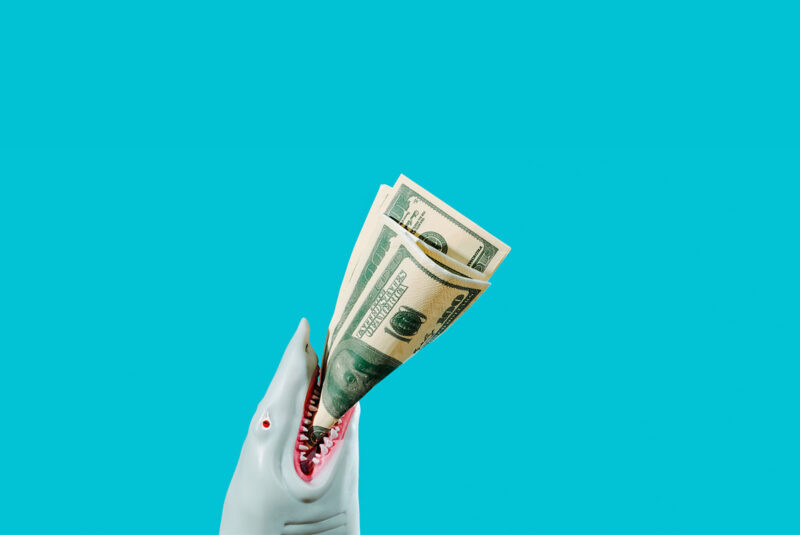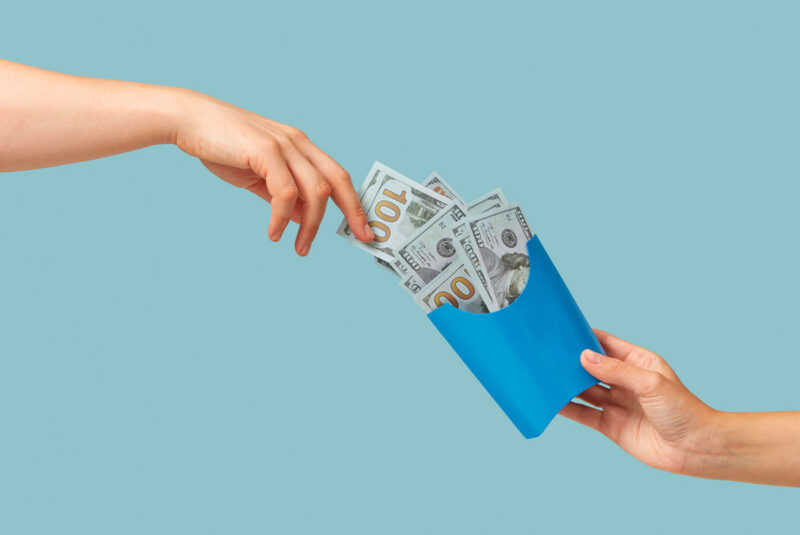Sometimes, we need to make purchases we don’t have the cash to buy outright. In those instances, two of the most popular options consumers turn to are personal loans and credit cards. But which option is best for your situation?
In this article, we’ll walk you through the key differences between a credit card and a personal loan, the strengths and weaknesses of each and recommendations for when each option is best. Our goal is to give you the information to decide for yourself which method to use.
Ready for a Personal Loan?
Applying through Rocket LoansSM is fast and easy.
Checking your options won’t affect your credit score.
Personal Loan vs. Credit Card: Key Differences
Personal loans and credit cards are extremely different in many ways, from their structure to how much they cost. We’ll walk you through the key differences below:
Overview
This chart provides a high-level overview. We’ll go into more detail in the sections below.
| Personal Loans | Credit Cards | |
| Type of Credit | Installment credit | Revolving credit |
| Collateral | Only for secured personal loans (not the norm) | Only for secured credit cards (not the norm) |
| APR | Usually lower than credit cards | Usually higher than personal loans, but may offer a promotion that’s better initially |
| Monthly Payments | Fixed monthly payments (unless you have a variable interest rate) | Variable minimum monthly payments |
| Rewards | No rewards | Can come with rewards programs like cash back or redeemable points |
Type of credit
Personal loans are a type of installment credit. That means that you receive the money as a lump sum upfront. You’re then responsible for paying off the loan by the end of the loan term, usually in monthly payments. There’s a hard end date to the agreement.
Credit cards are a type of revolving credit. The amount of money you can charge is based on your credit limit, and you can use as much or as little of that as you’d like. You’re then responsible for paying off what you charge, but you can still charge more up to your credit limit. There’s no end date to the agreement.
Collateral
Most personal loans are unsecured loans, meaning that you don’t need to put down collateral (think, an asset) to qualify. In most cases, whether the lender decides to issue you the loan or not is based on the strength of your application. However, secured personal loans (ones that require collateral) do exist.
Credit cards are similar in that most credit cards do not require collateral. However, if your credit score isn’t good, you might need to apply for a secured credit card which requires putting down cash as collateral to receive the card.
APR
Annual Percentage Rate (APR) is a metric that combines the lender fees and the interest rate that you’ll be charged. It’s useful because it helps you compare the total cost of borrowing money. Let’s talk about the lender fees and the interest rate individually:
Lender fees
Generally, there are fewer fees to worry about with a personal loan. The most common one is the origination fee. Other potential fees would be a late payment fee or a prepayment penalty, but those only apply in specific circumstances. For example, a prepayment penalty only applies when paying your loan off early – and not all lenders charge this fee.
There are more potential fees to worry about with a credit card. Some cards have annual fees, foreign transaction fees, card replacement fees, over-limit fees and late payment fees.
Regardless of whether you choose a credit card or personal loan, make sure to understand what fees you could wind up paying before agreeing to the terms.
Interest rates
These are usually lower for personal loans than for credit cards. Most personal loans are fixed-rate loans, meaning that your interest rate will not change for the life of the loan. But be warned, if you choose a variable interest rate, it could change significantly over the life of the loan.
Interest rates are generally higher on credit cards than on personal loans, although some credit cards offer 0% intro APR periods. So long as you pay off your balance before the promotional window expires, you won’t be charged interest on your purchases.
However, most credit cards also come with variable interest rates that will be charged on your outstanding balances. This can impact your minimum monthly payment as soon as the next month.
Monthly payments
With a personal loan, your monthly payment will not change over the life of the loan (unless you opt for a variable interest rate). This makes budgeting predictable over the life of the loan.
Your monthly payments are much less predictable with a credit card. For starters, your base payment will be based on how much you charged. If you only charged $100, your minimum payment will be much less than if you charged $1,000.
On top of that, most credit cards have variable interest rates, which can have a big impact on your minimum payments depending on how interest rates change over time.
Rewards
There aren’t really any reward programs tied to personal loans. It’s possible to use a personal loan for a rewarding experience, like a vacation loan or a wedding loan, but you don’t get extra perks for paying back the loan on time.
On the other hand, many credit cards come with reward programs. Some are simple, like cash back on a certain percentage of what you spend. Others offer a redeemable points system, with points that you can trade in for things like airline miles, store credits and other perks. The specifics depend on the card you use.
Personal Loan or Credit Card: Which Is Better?
Now that we’ve gone over the differences, let’s take a closer look at the strengths and weaknesses of each option as they relate to the other.
Personal loan pros and cons
PROS of personal loans👍
A personal loan will have lower interest rates than most credit cards. Depending on how much you plan to spend, this can save you a significant amount over time.
If you have a fixed interest rate, your minimum monthly payment won’t change with a personal loan. That can provide peace of mind when it comes to budgeting and planning for future expenses.
Credit utilization is one factor that impacts your credit score. Taking out a personal loan won’t affect this number, meaning it won’t directly affect your credit score. However, if you pay back your loan on time it can improve your credit score.
Personal loans are usually processed quickly. Some lenders can even approve and issue funds in as little as one business day. Even after a credit card gets approved, you’ll still need to wait for it to come in the mail and activate it.
CONS of personal loans👎
Personal loans come in specific amounts, usually $2,000 to $45,000. If you take out a personal loan and realize you need more cash, you’d have to apply for another personal loan to get more money that way.
There aren’t any rewards for paying back your personal loan on time. That means you could miss out on earning cash back, travel miles or other similar perks.
Depending on your loan terms, there could be a prepayment penalty for paying off your loan in full before the term ends. There aren’t any penalties associated with paying off your entire credit card balance.
Taking out a personal loan will increase your DTI ratio. This could impact your chances of qualifying for a loan in the future, like a mortgage.
See What You Prequalify For
Get prequalified offers for personal loans from Rocket LoansSM within seconds. Like what you see? Same-day funding is available.
Checking your options won’t affect your credit score.
Credit card pros and cons
PROS of credit cards👍
Having a credit limit gives you flexibility in how much you spend. It can also provide an emergency blanket. While an allocated emergency fund is preferable, knowing you have the option to swipe your card in a pinch can provide some peace of mind.
Many cards, especially balance transfer cards, come with 0% intro APR periods, meaning that you can save money on interest for purchases you pay off during this window.
You can pay the minimum monthly payment or more each month, giving you the flexibility to pay off the charges based on what’s going on with your finances each month.
Many credit cards come with reward programs for using them. Over time, these can add up and be redeemed. Not a bad perk, especially when used on expenses you had to pay regardless.
CONS of credit cards👎
The flexibility and convenience of a credit card is also what makes them dangerous. It’s easy to keep swiping and lose track of just how much you’re spending.
The minimum payment you’ll owe will change based on how much you’ve charged and what the variable interest rate is. This can make budgeting more unpredictable, especially if you don’t pay off the balance each month.
Charging purchases to your credit card will impact your credit utilization percentage. If you don’t pay off the balance, this can negatively affect your credit score, even if you’re keeping up with your minimum payments.
When To Consider a Personal Loan
Here are some common situations where a personal loan might make more sense than a credit card.
- Debt consolidation: Personal loans for debt consolidation are one of the best uses for a personal loan. It can streamline your monthly payments and save you on interest.
- Financing a big purchase: If you want to finance a large purchase and pay it back over a few years, a personal loan will likely be a better option because of the lower interest rates and potential for fixed payments.
- Home improvements: Home improvement loans are another popular type of personal loan. Home improvements tend to be expensive, but a personal loan can help you afford them while simultaneously increasing the value of your home.
- You can’t qualify for a credit card: Depending on the credit card company, the credit score minimums may be higher for a credit card than a personal loan. If you can’t qualify for a card, a personal loan might be your only option.
When To Consider a Credit Card
Here’s when it might make more sense to pull out the credit card instead of opting for a personal loan.
- Small, everyday purchases: Credit cards are better suited for small, everyday purchases. This can allow you to start qualifying for rewards without racking up more debt than you can pay off.
- When you can pay off the entire balance: If you know you can pay off the entire balance with your next payment, you won’t be charged interest.
- Travel expenses: Many credit cards come with specific travel perks. Using them to pay for travel and booking can supercharge your rewards, and you may be able to qualify for perks like airline miles as well.
Final Thoughts on Personal Loans vs. Credit Cards
Regardless of whether you’re leaning towards a personal loan or a credit card, it’s important to take the time to understand the nuances of each choice. In addition to understanding what you want to spend the money on, it’s also just as important to understand how you’re going to pay the money back and what that timeline will look like.
Get Prequalified for Loans from $2,000 to $45,000
Rocket LoansSM offers personal loans from $2,000 – $45,000. From debt consolidation to unexpected expenses, we’ve got you covered.
Checking your options won’t affect your credit score.
The Short Version
- Personal loans usually come with lower interest rates, fixed repayment terms and don’t directly affect your credit score
- Credit cards offer more spending versatility, flexible repayment terms and can come with reward programs
- Personal loans are generally recommended for financing bigger purchases while credit cards are better suited for everyday expenses




